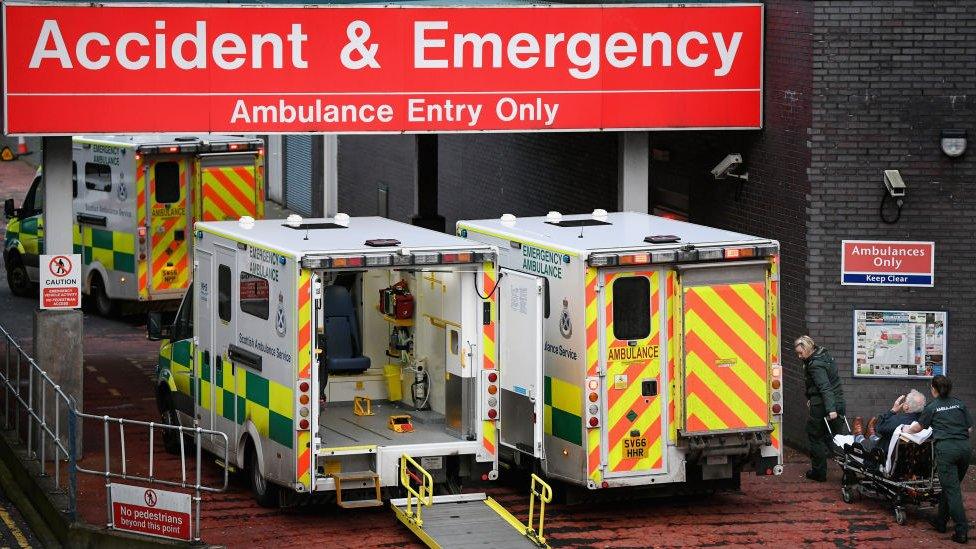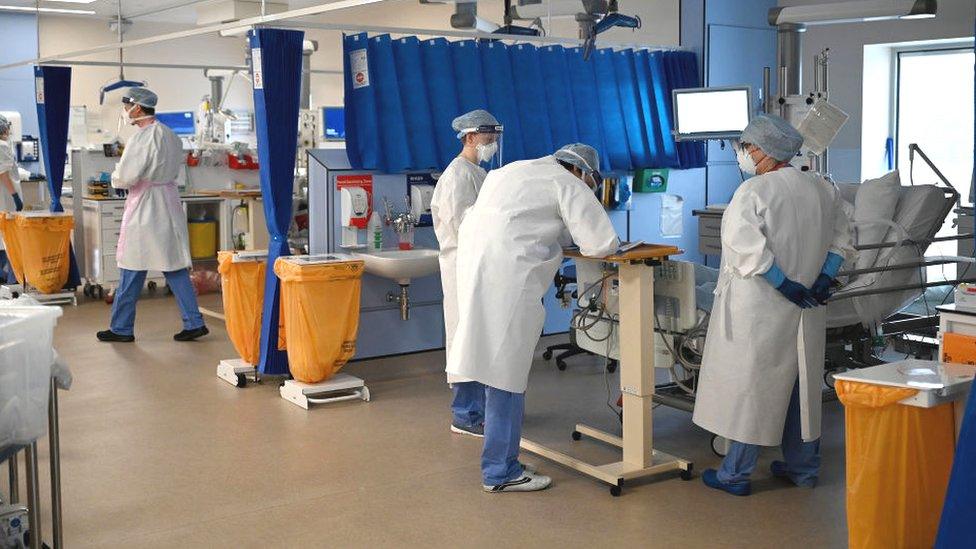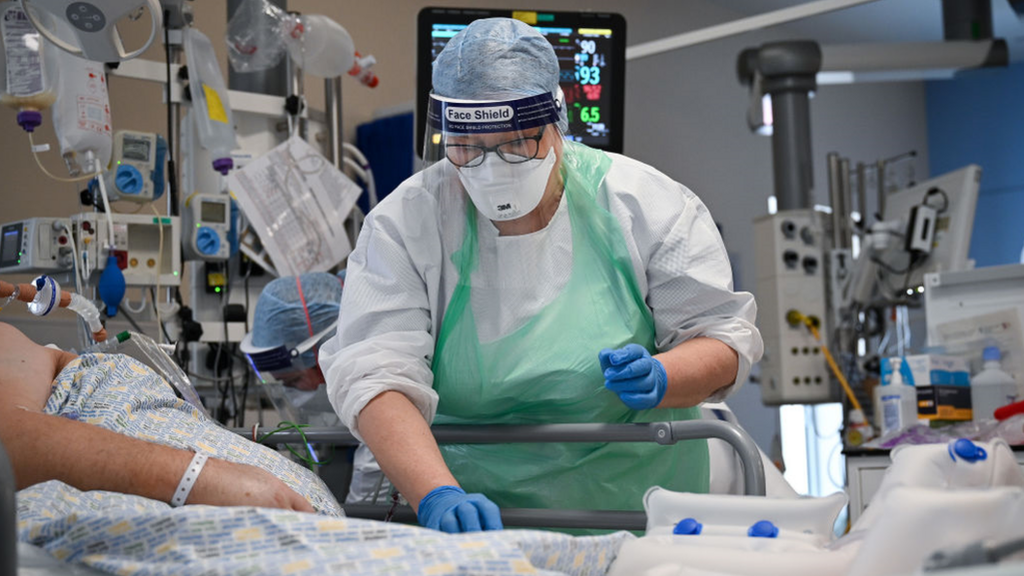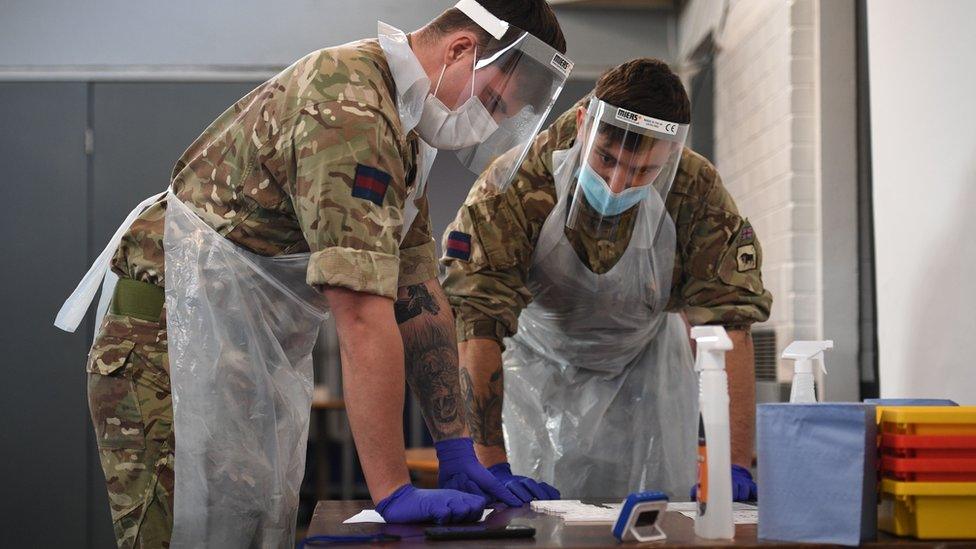NHS board tells patients not to go to A&E unless 'life-threatening'
- Published

NHS Greater Glasgow and Clyde has asked patients not to attend its A&E departments unless their condition is life-threatening
Glasgow's health board has urged patients only to attend A&E if an issue is "life-threatening".
The plea comes after it emerged that a third of those who went to the board's flagship hospital in one week were there for minor injuries.
Health boards across the country have struggled to deal with normal service on top of the pandemic.
The military are providing support to NHS Lanarkshire and NHS Borders. NHS Grampian have also requested help.
NHS Greater Glasgow and Clyde said 32% of attendances at the Queen Elizabeth University Hospital's A&E department were deemed not to be life threatening, with staff treating injuries including bruising, cut fingers and lower back pain.
On Saturday, Scott Davidson, the deputy medical director at NHS Greater Glasgow and Clyde, said: "We would urge everyone that, unless their condition is life-threatening, they should not attend an emergency department.
"If you are in any doubt about who you should contact, please call NHS24 on 111 to access the appropriate care. If necessary you will be given an onward referral to our flow navigation centre team, who will call you back and undertake a virtual consultation.
"This can be undertaken in your own home and may mean the condition can be treated without you leaving home. Should you need to attend an emergency department, the team will instruct you to do so."
He said that some of the "minor ailments" A&E departments were seeing patients for included cuts and scrapes, dental pain, urinary tract infections, and sore throats.

NHS Lanarkshire said its three hospitals - Monklands (pictured), Wishaw and Hairmyres - were at capacity.
On Friday, NHS Lanarkshire said it had moved to the "highest level of risk" as its three hospitals were at "maximum capacity".
It said due to "critical occupancy levels" and "the overall pressure on the whole health system in Lanarkshire", it had moved up to the highest risk category, which is colour-coded as black., external
Laura Ace, NHS Lanarkshire's strategic commander and deputy chief executive, said: "The sustained pressure continues across our three acute hospitals and is showing no signs of easing. We are facing relentless pressures, bed shortages and staff shortages due to sickness, stress and self-isolation.
"We took the decision at the end of August to temporarily postpone the majority of non-urgent planned care procedures and, unfortunately, the current pressures mean we are having to further stand down elective (planned) procedures including some cancer procedures, which we will reschedule as soon as possible."
She added that the current situation was "unprecedented".
Earlier this week, NHS Grampian became the latest Scottish health board to ask for military help amid the pandemic.
NHS Lanarkshire and NHS Borders are already receiving assistance from the armed forces.


Related topics
- Published22 October 2021

- Published15 October 2021
